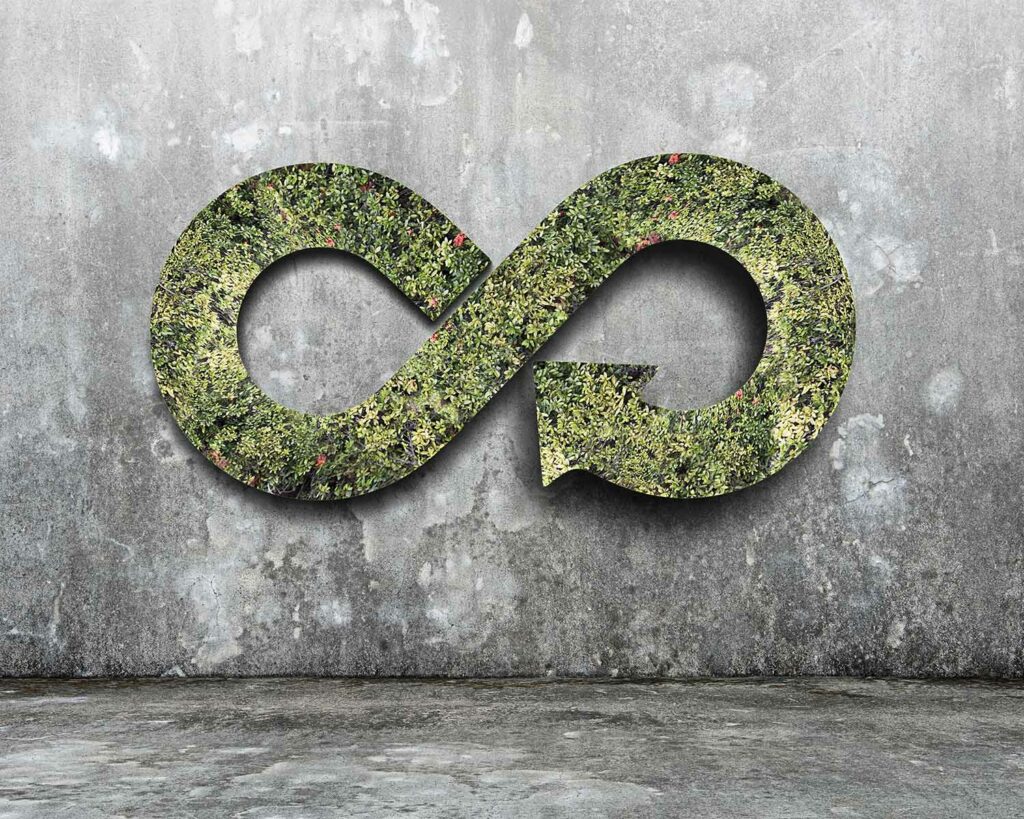The circular economy is more than a buzzword. Over the last few years, the myth of the linear economy as the sole viable model has been deconstructed. And the possibility of a more circular, and as such, a sustainable economy increasingly promoted across business sectors.
That said, do you still find yourself asking, what exactly IS a circular economy?
To put it broadly, the linear economy is based on a traditional model of “take-make-waste”, whereas the circular economy has a more “product lifecycle” approach. While recycling is often considered the figurehead of the circular economy, there are many other aspects to be taken into account.
“To make an economy fully circular, products have to be designed differently,” conclude ESCP Professor of Environment and Economics, Sylvie Geisendorf, and PhD Candidate, Paul Wolf, in the ESCP Deloitte Chair’s “Look’Around 2020”. “They have to contain materials that are available and unproblematic – ultimately only renewable ones – sourced in a non-destructive manner, in supportable amounts and assembled into compounds that can be disassembled after usage.”
In his article titled “The circular economy: Four million business models and counting,” ESCP Professor for Corporate Sustainability Florian Lüdeke-Freund explains that “for companies to create more circular production and consumption systems, they must develop and improve the reverse flows of their supply chains, and sooner or later that requires them to adapt their business models – for example, replacing non-renewable with renewable inputs, using recycled materials and creating products that are easier to refurbish or remanufacture.”
In this same article, Strategy Consultant at Monitor Deloitte, Dorian Bouveresse adds “The transition from a linear to a circular model involves indeed a complete change of mindset, a shared vision of the issues at stake and a risky initial investment phase. But it also requires to have a deep understanding of what a circular model actually means in practice.”
The Look’Around: A collection of experts’ articles on the circular economy
To get a better overview and understand the stakes of the circular economy, the Deloitte ESCP Circular Economy chair collected twelve articles by ESCP’s professors and PhD students to create the “Look’Around 2020“. Organized according to thematic entries and covering varied approaches, their contributions are enriched by the views and feedback of Deloitte experts.
While each of the articles can be read independently, this bilingual report is built around three main themes:
- the founding principles of the circular economy
- a set of case studies on companies advocating circular business models
- challenges facing the circular economy.
More precisely and in the words of Professors Aurélien Acquier and Valentina Carbone, scientific co-directors of the Chair:
“The first two articles set out the grammar and founding principles of the circular economy, while exploring the plurality of associated business models. This is followed by a set of more targeted case studies, focusing on companies and ecosystems that appropriate the circular economy. The cases of Phenix, Interface and ECF can thus inspire entrepreneurs in search of meaning. The approaches applied in the context of cities and supply chains show the multi-actor dynamics that can foster or hinder the emergence of circular ecosystems.
Finally, the last block of five articles questions several transversal challenges of the circular transition. What role for technology (“tech for good” and artificial intelligence)? What forms of regulation? What role for management training institutions and how can we reinvent our pedagogical models in the light of the major ecological challenges? What kind of institutional evolutions would be likely to accelerate the transition to the circular economy, following the Covid crisis?”
Take a “Look’Around”.
Feature photo credit: Tsung-Lin Wu – stock.adobe.com.
